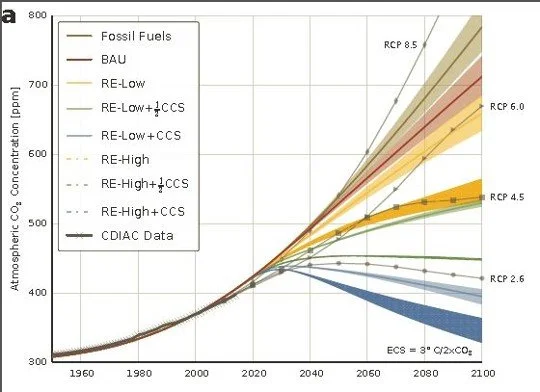10 Years to Save Civilization
Scientists Say We Have 10 Years to Save Civilization
Human beings across the planet need to take decisive action to use less energy, to produce renewable energy and to change farming, food waste and deforestation practices if we are to prevent global average temperatures from rising more than 1.5°C above pre-industrial levels. Scientists from the International Institute for Applied Systems Analysis (IIASA) have published a study in the journal Nature Communications based on a global model of the carbon system that accounts for carbon release and uptake through both natural and anthropogenic (human-caused) activities.
Michael Obersteiner, IIASA Ecosystems Services and Management Program Director, a study coauthor says, “The study shows that the combined energy and land-use system should deliver zero net anthropogenic emissions well before 2040 in order to assure the attainability of a 1.5°C target by 2100.”
The study states that fossil fuel consumption would likely need to be reduced to less than 25% of the global energy supply by 2100, compared to 95% today. In addition, land use change, such as deforestation, must be decreased. This would lead to a 42% decrease in cumulative emissions by the end of the century compared to a business as usual scenario.
“This study gives a broad accounting of the carbon dioxide in our atmosphere, where it comes from and where it goes. We take into account not just emissions from fossil fuels, but also agriculture, land use, food production, bioenergy, and carbon uptake by natural ecosystems,” explains World Bank consultant Brian Walsh, who led the study while working as an IIASA researcher.
Atmospheric carbon concentration [ppm] in the various scenarios, shown with CDIAC data and RCP projections © Walsh et al, 2017 IIASA
With severe storms and unseasonably warm weather pounding much of the U.S., what will it take for each of us – citizens, consumers, producers and policy makers – to decide it is urgently important to change how we produce energy, grow food, handle waste and operate transportation systems? We need to incorporate the environmental and social costs of pollution into the price of fuels that cause harm. We need to stop subsidizing exploration and extraction of fuels that threaten our future. In addition, we need to increase our investments in research, development and deployment of solutions that reduce fugitive carbon, prevent ocean acidification and increase soil vitality and health. Meanwhile, the costs of recovering from intensified storms, heat and other climate consequences will absorb increasing amounts of capital.
Some companies such as Apple have committed not only to 100% renewable energy but also to use only materials that have already been mined. They have declared that they will take a circular economy approach to manufacturing and to repurposing products and packaging. Salesforce, Facebook, GM and Google are other companies already on a path to 100% renewable energy combined with very aggressive energy efficiency measures.
While the agreements reached at the UN Conference of Parties (COP) meeting in Paris in 2015 may not be sufficient, it is clear that they are necessary and that it is very important the U.S. continue its leadership role in transitioning to a clean energy and sustainable agriculture and forest management future.
For those of us who are parents and for all adults who know and care about a young person, we cannot in good conscience, ignore this urgent call to action. It is not fair to destroy their future because change is inconvenient for us.
For any executive working for a fossil fuel company, now is your opportunity to make saving civilization your top priority. Take those billions of dollars of profit and plough them into breakthrough solutions for transitioning to clean energy, storage, carbon removal and efficiency.
For all investors, insurance companies and fund managers, now is the time to move your investments away from potentially stranded assets. If the fossil fuel companies turn over a new leaf and direct their might to creating a habitable planet, then it will make sense to reinvest in their stock. Otherwise, don’t risk having the value of your investment plummet as countries begin to outlaw the use of fossil fuels as a crime against future generations.
References:
Earthwatch Article
News Release from IIASA

